Written by Brittany Edwards, OTR/L, Pediatric Occupational Therapist at CORA Roanoke
Early Intervention (EI) is a program for children ages birth to three with developmental delays or medical conditions that may delay typical development. The program uses a family-coaching model and takes place in the child’s natural environment, which is most often the family’s home. Once a referral is received, the family is connected to a Service Coordinator, who works with the family to develop an Individualized Family Service Plan (IFSP) and help determine what services would best suit their needs.
Early Intervention therapists assess many different areas of development. These areas include physical (gross/fine motor), cognitive, language (expressive/receptive), and adaptive/self-help. Occupational Therapists will often additionally assess a child’s sensory processing, which looks at how external sensory stimuli such as sound, light, or touch might affect the child’s behavior or social/emotional responses in different situations. If the child is delayed or atypically developing in any of these areas, he or she will qualify for Early Intervention services. Early Intervention can include one type of service or many, depending on the family’s goals and the child’s needs.
Occupational Therapy through Early Intervention differs from a medical model of treatment in that the therapists coach parents/caregivers in working with their children in order to meet the family’s goals. At this age, most children have formed close attachments to their primary caregiver; these attachments are crucial for secure social and emotional development. Children this age often respond best when the parent/caregiver, rather than the therapist, regularly implements the strategies in their daily routines.
What Does Occupational Therapy Look Like in Early Intervention?
Each visit, the therapist meets with the parent/caregiver to find out what strategies have helped, what strategies are not working, and what the family’s current goals are for their child. Some parents/caregivers may want their child to be able to sit for longer than two minutes in a highchair to eat a meal with the family. Others may want their child to eat a greater variety of foods but have difficulty because of texture aversions. Some parents/caregivers may struggle taking their child in public because he or she has a meltdown anytime they go into a store. Others may notice that their child is not using both hands equally in play or is not reaching, grasping, or using toys.
Occupational therapists will then observe the child performing these activities in their natural environment and determine what skills are in need for the child to be successful with an activity. Occupational therapists use a process called activity analysis, a mental process that breaks down an activity into all its necessary components (motor, sensory/perceptual, cognitive, psychological/emotional, inter-personal, and socio-cultural). They will also consider factors such as time, space, and adaptability. Occupational therapists are master “problem solvers” and use knowledge of these factors to make recommendations to the family on ways to best adapt the activity or environment to maximize their child’s success.
If your child is under age three and you suspect developmental delays or he/she has difficulty with parts of his/her daily routine, your child may benefit from Occupational Therapy through Early Intervention. If you are interested in learning more about developmental milestones, the Centers for Disease and Control and Prevention (CDC) has published checklists that are available to the public. A link to these checklists can be found here: Developmental Milestones CDC (Milestones matter! Download the PDF version). Discuss any concerns with your child’s pediatrician to see if a referral is needed. It is never too early to ask for help!
Are You Ready to Speak with an Expert OT About Your Child’s Development?
If you want to learn more or are ready to enlist the help of a skilled occupational therapist, please visit one of our 210+ locations throughout Florida, Georgia, Kentucky, North Carolina, South Carolina, Tennessee, Virginia, Illinois and Missouri. You can schedule an appointment at the clinic nearest you or use our virtual telehealth appointment form to speak with a licensed occupational therapist by phone, computer or any device with a camera.
